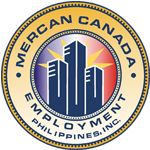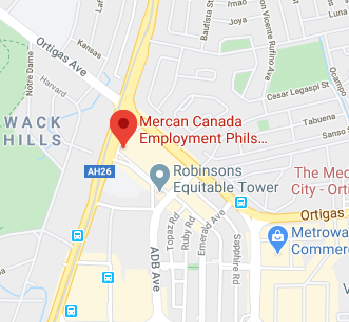COVID-19 vaccinated travellers entering Canada
COVID-19 vaccinated travellers entering Canada
Travellers are eligible to enter or return to Canada if they qualify as a fully vaccinated traveller.
On this page
- Check if you qualify as a fully vaccinated traveller
- Checklist of what to have ready at the border
- Pre-entry testing (accepted types, timing)
- Set up your ArriveCAN account
- Arrival testing if selected
- Children or dependents
Check if you qualify as a fully vaccinated traveller
To qualify as a fully vaccinated traveller to Canada, you must:
- have received at least 2 doses of a vaccine accepted for travel, a mix of 2 accepted vaccines
- or at least 1 dose of the Janssen/Johnson & Johnson vaccine
- have received your second dose at least 14 calendar days before you enter Canada
- Example: if your second dose was anytime on Thursday, July 1, then Thursday, July 15 would be the first day that you meet the 14 day condition
- have no signs or symptoms of COVID-19
- follow pre-entry testing and entry requirements
- upload proof of vaccination in ArriveCAN
- complete your ArriveCAN submission and and have ArriveCAN receipt with letter I, V, or A beside your name
- complete arrival test if selected
Accepted vaccines
If your proof of vaccination is not in English or French
What is not accepted as a fully vaccinated traveller
Checklist of what you need to have ready at the border
To enter or return to Canada as a fully vaccinated traveller, you must follow all of these requirements.
Have the following items with you for assessment by a government official at the border (land border crossings do not provide WiFi for travellers):
Pre-entry testing (accepted types, timing)
Options for providing proof of a valid pre-entry test
All travellers 5 years of age or older must provide proof of one of the following accepted types of test results:
- Starting February 28: proof of a professionally administered or observed antigen test taken outside of Canada no more than 1 day before your scheduled flight or entry to Canada by land or water
- the one day window does not depend on the time of day the test was taken or the time of your flight or entry
- for example, if your flight is scheduled to leave or you enter by land any time on Friday, you could provide proof of a negative result from an antigen test taken any time on Thursday, or on Friday
- it must be administered or observed by a pharmacy, laboratory, healthcare entity or telehealth service
- the test must be authorized for sale or distribution in Canada or in the jurisdiction in which it was obtained
- the test must be performed outside of Canada
- Proof of a valid negative molecular test taken within 72 hours of your scheduled flight’s departure time to Canada or your entry to Canada by land or water
- for example, if your flight is scheduled to leave at 11:00 am on Friday, your test must have been taken any time after 10:59 am on Tuesday
- Previous positive molecular test result: you no longer have symptoms and provide proof of a positive molecular test taken at least 10 calendar days and no more than 180 calendar days before entering Canada. Counting starts the day after your test.
- for example, if your positive COVID-19 molecular test was taken on January 1, then January 11 would be the earliest scheduled departure date of your flight to Canada, or the first day you could use it to enter Canada by land or water
- if your positive proof is accepted you won’t have to take arrival or Day-8 tests
- a positive antigen test result is never a valid test result for boarding a flight or entry to Canada and can’t be used as proof of a previous infection
End of short trip exemption: the pre-entry testing exemption for trips 72 hours or less ended on December 21, 2021.
- Children under 5 years of age
- Those who are exempt (e.g. crew, essential services, and cross-border communities)
Flying to Canada – when to take your test
Arriving by car, bus, boat, ferry or train
Positive results on your pre-entry test
Accepted types of tests
Molecular tests
- PCR – Polymerase chain reaction
- Nucleic acid test (NAT) or Nucleic acid amplification test (NAATs)
- Reverse transcription loop-mediated isothermal amplification (RT-LAMP)
These tests use methods such as a nasopharyngeal (NP) swab, nose swab, or saliva sample.
Other acceptable types of molecular tests:
Antigen tests
Your antigen test must be administered or observed by a laboratory or testing provider.
Phrases indicating a test is an antigen test could include, but is not limited to:
- rapid antigen test
- viral antigen test
- diagnostic immunoassay
- lateral flow test (LFT)
- also could be noted as an Antigen Chromatographic Digital Immunoassay, Antigen Chemiluminescence Immunoassay, or Antigen Lateral Flow Fluorescence
Providing proof of your result
Arriving without an accepted COVID-19 test
Testing facilities and expenses
Set up your ArriveCAN account before you travel
You must use the ArriveCAN mobile app or sign in on a computer to enter your proof of vaccination, quarantine and travel information.
- Proof of vaccination and travel documents can be saved in your ArriveCAN traveller profile before any planned travel
- ArriveCAN is always free
To be ready for your trip, create your free ArriveCAN account
To get an ArriveCAN receipt, submit your travel and quarantine plan information within 72 hours before your arrival to Canada.
No smartphone? Within 72 hours of your arrival in Canada, sign in to ArriveCAN from a computer to get your ArriveCAN receipt. Print your receipt and take it with you when you travel.
Upload proof of vaccination in ArriveCAN before you travel
Quarantine plan in ArriveCAN
Troubleshooting vaccination issues in ArriveCAN
You didn’t see the vaccination questions in ArriveCAN or couldn’t upload proof
No receipt from ArriveCAN
Contact ArriveCAN if you receive emails or notifications
Your ArriveCAN receipt doesn’t include the letters I, V, or A
ArriveCAN general troubleshooting and help
Arrival tests
Upon your entry to Canada by air or at a land border crossing, the border services officer may notify you that you have been randomly selected for a mandatory arrival test.
As a fully vaccinated traveller, you can travel to your destination, including on connecting flights, without waiting for your arrival test results (if selected for testing).
Who must take an arrival test if selected to do so upon arrival
Air travellers: register in advance for arrival testing
You may be required to get tested before exiting the airport. To speed you through the process, register in advance with the testing provider for the airport you will arrive at.
When you register, use the same email address you used for your ArriveCAN account.
Register with airport test providers
Land border test providers
Completing your arrival test
Fines and consequences of failing to complete the testing requirements
Your arrival test results
You can take connecting flights and trains without waiting for your arrival test results.
Starting February 28, 2022: fully vaccinated travellers arriving from any country will no longer be required to quarantine while awaiting their test result.
If your arrival test is negative:
- follow local public health measures
- wear a well-fitted mask when in public spaces for the first 14 days after your entry;
- maintain a list of all close contacts and locations you visit for your first 14 days in Canada
- monitor yourself for signs and symptoms
- keep copies of your proof of vaccination and pre-arrival tests for 14 days
Invalid or indeterminate results from your arrival test
How to contact your test provider
British Columbia, Saskatchewan, Yukon
Alberta, Ontario, New Brunswick, Nova Scotia
Manitoba
Quebec
Positive arrival test, symptoms, or exposure after your arrival
Monitor for symptoms for 14 days after your arrival.
If a fully vaccinated traveller or unvaccinated child under 12 years of age tests positive:
- they must isolate for 10 days
- report your test results and/or symptoms to PHAC by calling 1-833-641-0343
If a parent, step-parent, guardian, or tutor a child has travelled with experiences symptoms or tests positive:
- unvaccinated children under 12 years of age must quarantine for 14 days and monitor for symptoms
- report your test results and/or symptoms to PHAC by calling 1-833-641-0343
If a person you travelled with develops symptoms or tests positive, you must begin a 14-day quarantine period starting from your last exposure to the person.
You must provide proof of your test results, if asked, to any federal, provincial, territorial or municipal government official or peace officer.
Children or dependents
Vaccinated children under 12 years of age
Unvaccinated or not fully vaccinated children under 12 years of age
Youth aged 12 to 17 years of age
Unvaccinated adult dependents
ArriveCAN: If your submission includes travellers who are not exempt from the requirement to quarantine (for example, unvaccinated 12 to 17 year-olds or unvaccinated dependent adults), you will receive ArriveCAN notifications and will be asked to complete daily reporting for the unvaccinated travellers.


